MT6 Records: Part 5 – Interview w/ Alex Strama
To close out our series on MT6, I grabbed some joe with label-head Alex Strama (Newagehillbilly, Heroin U.K., tons more) to talk about all things empty six.
Aural States: So let’s start with your background, what came before MT6, how you got into experimental music and what drove you to start MT6?
Alex Strama: Well, before MT6…that started in ’98. I was doing music way before that. I graduated high school in ’95; in high school, I had a few bands I was in. More towards the rock end. Still kinda weird, but definitely more rock-oriented. I recorded a bunch of stuff, but I didn’t know anybody that was gonna put it out. I’m from Harford County, so I lived in the sticks, and at that point I knew very little bout the Baltimore music scene. So I started it mainly to release my own stuff: in ’98 I put out a release from a band I was in called Operation Huss, a 3-piece indie rock band.
I would say what exposed me to experimental music was the Red Room. Definitely. About 2000, through playing with friends like Carlos (Guillen). He was in the band the Penny Regime at that point, which was kind of a straight-ahead punk band. He was really into the Red Room, had played with a couple of the guys like Dan Breen. I’m believing that I probably played a show with Carlos or Dan or another band, and just kind of branched of into seeing some bizarre stuff.
I went to the Red Room Crap Shoot, which still happens the first Tuesday of every month. You just come in with anything, any instrument, that makes a sound. It’s like an open-mic but more collaborative, they pick a couple of people and then you just kinda do your thing. I would say that definitely opened me up to experimental music because I hadn’t heard anything like that before. Awesome, great feeling to be exposed to that stuff. I mean I was listening to some early Sonic Youth before that which was pretty out there…but the Red Room definitely opened me up to the weirder side of Baltimore music.
AS: When did MT6 start evolving into an engine for the more creative and experimental stuff to come out of Baltimore?
Alex S: Probably not until 2004. Between 2000 and 2004, I probably released about 10 things…mostly of stuff I was in. This band called Rot Guts, 2 bass players, a drummer and a keyboardist. We played shows and released something. Some friends were in Chief Pokawa. So at that point, it was just me and close friends. But at that point, in 2004, I was approached by the band Human Host who were looking for someone to put their stuff out. It was all CD-R then, so that was the first official CD release. So the first chapter was me releasing my own, and real close friends’, stuff. Then when I released that, it was kind of a new chapter.
AS: And they had connections into the city too. Charm City Suicides were…
Alex S: Yeah, legendary in their own right. They had connections that I would’ve never had, so they definitely opened it up. Through that I met Rick Weaver who’s in the New Flesh and runs Human Conduct. That was a whole world I didn’t know existed. That was definitely the thing that kickstarted it.
AS: So when you started, you didn’t really have any aspirations for MT6 other than an engine for you?
Alex S: Yeah, pretty much. I didn’t really expect it to go any further. But as soon as I did release that Human Host, I got a bug. And it really motivated me. After that I did stuff with the New Flesh and Passiou.
AS: What was it that was so rewarding?
Alex S: The sense of creating a community and helping artists get their stuff out there. Not just creating a community, but becoming a part of one. To meet people and get inspired by what they were doing…it was great. Up until not too long ago, live shows were very important to me. Putting them together and/or playing them. It’s really cool, you get a great satisfaction from that. And at that point, in my personal life, I was looking for something to do. I was working at Mars Music, which has since gone out of business. I met a lot of people through that; I actually met and saw Nautical Almanac there when they first moved to Batlimore, probably around 2002. There was this weird cable access show that got with Mars and recorded live music there on their stage. Nautical Almanc came in and I was just blown away.
AS: When did you start expanding your music into more experimental aspects?
Alex S: Probably on my own. I do Newagehillbilly, my solo project, and the first thing I released was probably about 2001. That was a collection of stuff I recorded from 1997 to 2001. Even back on those, it was weird. I was really into electronics and I really got into electronic music in the mid-90s. A lot of drum and bass, a lot of weird ambient stuff. That didn’t really reflect in the bands I was in, because I was with other people, but on my own, I was starting to connect the dots. Doing a lot of weirder stuff, experimenting with different sounds and instruments. I played my first Newage show in Jan 2002. The full electronic show with drum machines, samplers, stuff like that…
 AS: So let’s talk about that a little…you were saying until recently the live aspect of music was really important.
AS: So let’s talk about that a little…you were saying until recently the live aspect of music was really important.
Alex S: In the last two years, I had a daughter…so that cut things back a little. I’m not too sure how familiar you are with her history, but she has some medical stuff so that REALLY cut back on time, which is fine. That allowed me to concentrate on different things, like the label aspect, which I can do at home. But those early shows were really fun.
AS: How did things progress for you, from where you started in live performance and over time as you got more into the experimental side?
Alex S: I was doing sound at the Cafe Tattoo, which turned into the Mojo Room. I was doing sound there, and eventually started booking shows. I would get a hold of anybody I thought was interesting to play. So I would have John Berndt, Nautical Almanac a few times, tons of touring bands like the Peppermints (Pawtracks). Each time I would see something like that I would get more inspired in my own experimentation performing live. The Mojo was a huge outlet and source of inspiration for me.
AS: Seems like depending on who it is, the performance aspect is more prominent. Human Host, for example, adds a whole nother dimension to their music with performance art, as opposed to someone who is experimental but is more nose-to-the-grindstone, all about the sounds. How important is that aspect to you?
Alex S: Well, Newagehillbilly for example, I’ve had people tell me: “This is flat-out performance art.” I’ll do things like puke on stage for the entertainment aspect, the visual aspect. There was a year where I only played in my underwear. Me personally, if I’m sloppy, it’s almost secondary. I’m there to just perform. You can read some reviews on my Myspace that just don’t get it. ”What’s this guy doing? He’s playing guitar, hitting wrong notes sometimes…” But then they say, the admirable thing was he kept pushing through. And that’s what I’m gonna do. It’s in the moment, I’m not gonna stress if I hit a wrong chord or something.
AS: So in your head, is there a split between the music and the performance? The label and recorded output versus the live shows? Obviously, it’s difficult as a label to try and record things in order to capture the performance aspect of an act.
Alex S: Yeah, the first three Newagehillbilly albums, I never even did any of those songs live. Some of them I wouldn’t even know how to recreate. Most of the shows from the early days were just improv with the instruments I was using on the album. The samplers, synths and drum machines. In that respect, there’s a definite difference between studio and live. I think I made a conscious effort around when I released White Walls in 2005, to make actual songs. So those can be recreated live. I figured I had done 3 albums of experimental electronic, so I’d go back to the rock roots I’ve always had.
Right now, I’m in Heroin UK. That’s a band where it’s not that experimental. It’s a little out there for a rock band, especially live where you can do a lot of experimental, improv stuff.
AS: Right, but if you put Bad Liquor, Heroin U.K. up against the rest of MT6…
Alex S: Yeah, it’s gonna sound fairly normal or more traditional. And the thing with Bad Liquor Pond is I just met em and they were really nice guys. I was into their music, they were looking for a way to get it out there. They were motivated and seemed dedicated, so I don’t have a problem doing that. I’m not gonna say “No this is too normal.”

AS: So you’re not enforcing a strict aesthetic or anything?
Alex S: Not too much. I’ve actually gotten, not quite bashed, but…through the grapevine I heard from another person they were talking to someone who said: “Alex and MT6…they’re not into any of the aesthetics for it…they just like to get fucked up and jam. They’re not in it for the art.” Which is completely ridiculous.
But there’s one thing about MT6, the people that are on it, and the shows that we have. It’s a fun time, it’s not a quiet audience…even if it’s an acoustic thing. We respect it but we’re also talking, interacting and having a good time. And we’ve definitely been at shows where people just get really pissed. We’re treating it like a party, and they think maybe we’re disrespecting the bands or something. But hey, it’s a fucking Saturday night, we’re at a rock club, I’m gonna have a good time. If we wanna laugh, drink beer, get crazy then that’s what we’re gonna do. I’m not gonna feel bad about it.
So a sidenote on the Wire Orchestra: another online publication in town wrote a review of us. And I don’t mind a bad review at all, but I think that if it gets personal or if someone doesn’t do the right research, there’s something wrong with that. The writer basically said it’s impossible for the album to be improv. Because it’s an improv album but it’s like a space rock album. It was completely improv. We just went into the studio and recorded a bunch of material.
Now let’s say we cut 5 minutes from the middle of a 15 minute jam, but it was improv the whole time. We just happened to cut sections out, and maybe they came off as songs to somebody. Basically, he just called us liars the whole time. I just felt like the writer should’ve done the research. If he really didn’t believe that, he should’ve contacted somebody or came and saw us live. I think I came home one night and found it, and it had already been up for like 2 months. I probably had a few beers and I wrote or emailed the writer and told him it was kind of ridiculous. So it got out that I’m some freak that got pissed that someone wrote a bad review. That was easily back in 2004, 2005. But Jeff the Taper still brings that up.
AS: Jeff’s got a long memory, and he’s doggedly dedicated to local music. Especially you guys…
Alex S: Yeah, he’s got a Heroin U.K. tattoo! He’s a great asset to the music community. He’s archived years of amazing stuff that would’ve never been heard again.
AS: Since we touched on the negative review thing, let’s talk about that a little more. It’s been a bit of a challenge for me since our first part of this piece wasn’t full of praise for everything MT6. Where do you stand on all of that?
Alex S: Well, once again I don’t mind a bad review. When I first read it, I was like yeah OK. But then I read it a few more times, and some of the stuff came off a little too personal towards some of the bands. It was kind of personal and him making some stuff up like he might’ve thought the band Dirt (who are actually called The Dirt, but I accidentally put them down as Dirt on the sampler), was like “Oh by the way they got their name from the second Alice in Chains album.” And it’s like how the hell would you know? You’re telling me there’s never been anything called Dirt before? It’s almost like in his head he thinks he knows now that they listened to a lot of Alice in Chains in high school, which just had nothing to do with the music.
There were a couple other things too. But, what am I gonna do. It was pretty encouraging to see comments from people, some of whom I don’t even know, saying it was harsh and that a lot of it was unnecessary. But you know, it’s just somebody’s opinion. I’d rather hear something like that than nothing. Because at least it’s making people think about the music. But the Dirt thing, the the thing with the Agrarians seemed a little too personal to me.
AS: That’s kind of the risk and baggage with our approach, which is a very subjective way of talking about music. This makes sense to me since music is a very personal experience. Each and every person writing on the site has a very different background and set of experiences, and is at a different place in their musical journey. For me and the site, it’s more about development and progression, people documenting their musical journey rather than positing some sort of “objective” final judgement type of review.
I think that most of the commenters missed that. It was really curious to me the closemindedness of the attitudes of the commenters while they were crying foul on Zack’s closemindedness. You really see progression if you follow through to the subsequent parts on Abiku and Jason Willett.
Alex S: Yeah definitely, I can see that.
AS: Obviously the community aspect is very important to MT6. What are the ups and downs of having a tight-knit and supportive community like this?
Alex S: Well I’d say the good side is the loyalty. People really appreciate somebody getting behind their music, especially if it’s completely out there. As far as like the MT6 fests every year, I just try and pack in as many of the bands as possible. 20 minute sets, 10 minutes in between. I think there’s probably even more than I know who support MT6. And that’s good because a lot of times, I think we’re almost like the bastard children of the city since a lot of people on the label are just doing their own thing. It’s not like they’re part of any collective or anything. There’s no preconceived notions of what you have to do, how you have to act. Everyone is just friendly, and dare I say, non-pretentious. They’re just normal people, not letting anything get to their heads. I think that’s a little different than other people in town.
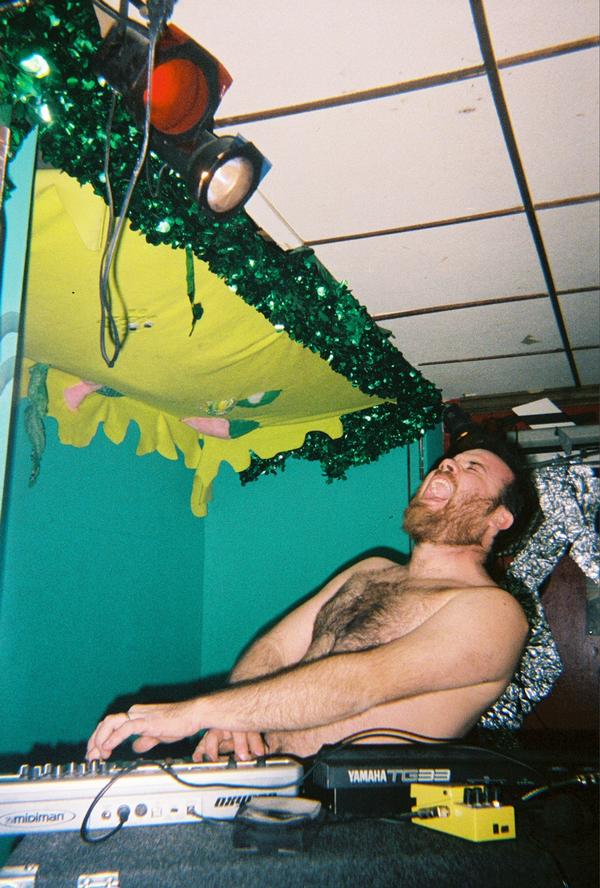 AS: So do you feel like this aspect of the community ever holds MT6 back or restricts your options?
AS: So do you feel like this aspect of the community ever holds MT6 back or restricts your options?
Alex S: I think so. Like I said before with the comment that we’re not into the music, we just want to get drunk, party and jam. I like crazy music just as much as anybody else. Just because I don’t look a certain way, or wear normal clothes and shit. Whatever man, I’ve never fucking cared about that. It’s not about that. There’s definitely been backlash, and MT6 has a certain reputation of not really caring and doing our own thing. And yeah, that can be a little alienating. People might be like “they’re just doing their thing, they’re wild and we’re just gonna stay away.” I read on some message board, or maybe blog about the music scene, it was almost a compliment but really pigeonholed us. Someone put in that MT6 just does their own thing, they don’t care and good for them. But it was kind of like they’re just doing their thing…
AS: Almost dismissively.
Alex S: Yeah, it was like respect, but also like maybe they didn’t want to explore it because they figured they knew what it was, and what we’re all about.
AS: How do you feel being in Baltimore has affected MT6? Would it be better anywhere else?
Alex S: Not necessarily. I think Baltimore’s great. It’s thriving with music. I love the city and it has a lot to offer. It has been getting the attention that it deserves.
AS: How has the increased attention affected MT6?
Alex S: I’ve definitely gotten contacted by different media stuff in the last 2 years. I would think it has to do with people researching Baltimore and coming across MT6. A really cool Japanese magazine did a full feature on Baltimore. Really in-depth, these people did a lot of research. A map of the city showing where all the venues are…it got into like MT6, Wham City, Monitor Records…it really covered a lot. You can’t read any of it, cuz it’s in Japanese, but they really did a lot. They were emailing me and I kept giving them tidbits of info if I had it. So that came out of it, and that was a killer, glossy magazine and they did a compilation CD using tracks from Newage, BLP, Jason Willett. They also had stuff from Wham City, Monitor, Creative Capitalism…
AS: Have you been able to explore other music scenes?
Alex S: Not really. I’ve been up to New York and played, but that’s such a big city…Philly a little. I know they have a lot going on in the West Side. DC, I just don’t know what to think of DC. It’s struggling, and it’s not that I don’t like it…it just seems it’s hard for everything to melt together because of the demographics. I just haven’t spent a lot of in-depth time in other scenes.
AS: When somebody that hasn’t heard something MT6 or anything experimental, what are the range of responses you typically get? What’s your approach to dealing with people who may be less than receptive?
Alex S: Well, I guess I just give it to them and let them make up their minds. I mean, something like the sampler, it has a lot of depth to it. You have anything from just drone to heroin U.K. rock to electronic to acoustic. It’s the fourth one I’ve done I think. Around 2005 I started doing them. I just figured, when I did the first one, it was the best way to package something as the label and give people an idea of what’s on it. Because you definitely don’t have any idea what the label is about if you just hear one band or a couple bands.
AS: The sampler is also tricky because it’s just one track from each band.
Alex S: Bands like Human Host or Newagehillbilly, that one track could sound completely different than the rest of their album. Some of the other bands are more consistent in their sound.
Alex S: Yeah, Bad Liquor Pond, the Agrarians…
AS: You’ve said before that you had a plan with the sampler and that you think there’s a lot of depth to it. Could you say a little more about that?
Alex S: That’s basically just meant for people to hear a bunch of the bands in one place, and explore the ones that stand out. I guess it’s pretty simple.
AS: Do you agree with Zack’s assessment that it would be pretty hard to imagine many people who can listen to the whole thing, all the way through?
Alex S: I don’t really believe that, no. I think there’s people who can listen to it all the way through. And possibly enjoy pretty much everything on it. Even though it’s so different sounding, it just depends on what your musical taste is and where your limits are. There’s plenty of people who listen to electronic, punk, jazz…and they like it all. So I think people that do that, can sit down and listen to it completely through, and come out thinking “oh wow that was awesome.”
They might not like it all, but it’s not like they would never want to put it back in their player like “oh God, it’s too much and I don’t know what to do with it.”
AS: Some people have pretty rigid lines and definitions for what qualifies as music. Have you had any encounters with these opinions and have they ever changed the way you think or operate?
Alex S: No I wouldn’t say there’s ever been an influence for me to go in a certain direction because of other’s opinions.
AS: Do you ever feel a counter influence, discouraging you from going down a certain path? Like, do you ever look at something and think this is too mainstream for us.
Alex S: I think I’ve done that before, yeah. I’ve definitely done that, a handful of times, when approached. It’s weird in that respect, becausee sometimes it’s almost like “maybe that’s not weird enough.” Sometimes it’s more the attitude of the band, what they were looking for. I think if people have a realistic idea of what MT6 can do for them, that’s a big thing. You can tell that right off the bat, what they expect out of it. So there’s been a few things where I’ve said “I don’t know if it’ll fit.” Which is kind of weird.
AS: Is there anything that pushes your envelope, that you might consider unlistenable or not musical?
Alex S: I think maybe in the past, but certainly not now. I don’t know if you get trained, in a way. Your ears and your mind get trained to say “this is crazy, but there’s something to it or something behind it.” I was actually watching on YouTube recently, this guy from Australia who takes glass in his mouth and has contact mics, real shrieking and crazy, he ends up cutting himself every show because he ends up thrashing and getting a little out of control and he’s got glass attached to his mouth! So I’ll listen to, watch anything. Even like G.G. Allin type stuff. The performance aspect, he definitely introduced something new with the violence of it.
AS: MT6 isn’t just experimenting in the music or performance aspects. You’re also doing some stuff behind the scenes, most notably the MT5 offshoot which does cassette releases…
Alex S: Yeah. We’ve mainly done CD-R’s since it’s very cost-effective, easy to make and for people to listen to. I’d like to do more CD’s, but you know, bottom-line. Vinyl would obviously be the ideal output, but I noticed that I hadn’t put out any cassettes. Mostly CD-R’s, CD’s, some 7″ releases. I was talking to Talibam from New York. I’d known Matt, who got in touch way back to try and set up a show with Human Host. So I kept in contact.
Then this band Le Harmacy from Italy got ahold of me. They were really into Talibam. I told Matt that we should do the split. He suggested the tape. You know, if you do the split on CD-R or CD, it’s kind of weird. There’s no break in between. A record you can flip over. A tape you can flip over. He was into it, but he wasn’t into the CD aspect so we went with tape.
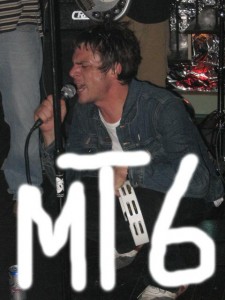 I thought it was great. I was gonna do it under MT6, but then I thought maybe I’ll start doing some cassettes, and I created a different home for it: MT5 tapes. Originally it was just gonna be splits, but then we did Wire Orchestra and Chief Pokawa ones. I was saying a couple years ago: tapes are gonna come back like records. The nostalgia of ‘em. I grew up on cassettes, so that’s a huge part. I still have a ton of them, and you look back on it and you think it’s so cool. You can hold it, completely durable. I was reading somebody was putting cassettes out, you can have a cassette at the bottom of your backpack for a year, and you can pull it out and it’ll sound just the same. Not get scratched like a CD-R. I’m actually releasing a Newagehillbilly cassette in the next month. MT5 is a little more under the radar than MT6. But I’ve definitely gotten orders.
I thought it was great. I was gonna do it under MT6, but then I thought maybe I’ll start doing some cassettes, and I created a different home for it: MT5 tapes. Originally it was just gonna be splits, but then we did Wire Orchestra and Chief Pokawa ones. I was saying a couple years ago: tapes are gonna come back like records. The nostalgia of ‘em. I grew up on cassettes, so that’s a huge part. I still have a ton of them, and you look back on it and you think it’s so cool. You can hold it, completely durable. I was reading somebody was putting cassettes out, you can have a cassette at the bottom of your backpack for a year, and you can pull it out and it’ll sound just the same. Not get scratched like a CD-R. I’m actually releasing a Newagehillbilly cassette in the next month. MT5 is a little more under the radar than MT6. But I’ve definitely gotten orders.
In fact, Thurston Moore ordered some MT5 stuff. It was pretty awesome, I opened the order and the email on Paypal was like Thurston at Ecstatic Peace. I was shocked.
AS: That’s amazing. Where do you see MT6 going from here into the immediate and far future?
Alex S: Immediate plans are to promote the Abiku CD. They’re working hard and touring, they really wanna do something with their music. I wanna help them as much as possible. I have some stuff coming out of my own. Newage and we’re definitely working on the next Heroin U.K. CD right now. The Newage tape coming on MT5 is basically straight-ahead house music.
As far as the broad future, I’m just gonna keep doing what I’m doing. I don’t wanna get too caught up in thinking about it too hard. If I do, it could bum me out and I lose sight of why I started it. And like I said before, I’m trying to get back to that. When all the real life happens, you gotta concentrate on that. And if the label’s not doing this or that, you start thinking should I even keep doing it?
And the answer is yes, I should. Because I originally started it just for the art of it. And I don’t ever want to lose sight of that.
Related posts
- Interview: The Pains of Being Pure at Heart (w/ Kip, Peggy, Alex)[Audio clip: view full post to listen] MP3: The Pains...
- Sign On!: Human Conduct Records, Part 3: Interview (w/ Rick Weaver)To cap off this series of posts on Human Conduct...
- 2008 Wrap-Up (Alex) – Live PerformancesLuckily, my editor is on in-between semester break. Otherwise, I’m...
- MT6 Records: Part 1 – Getting your feet wet…MT6 is a record label based in Baltimore that puts...
- MT6 Records: Part 4 – In the deep end…Welcome Carlos Guillen, who will be providing an insider’s take...







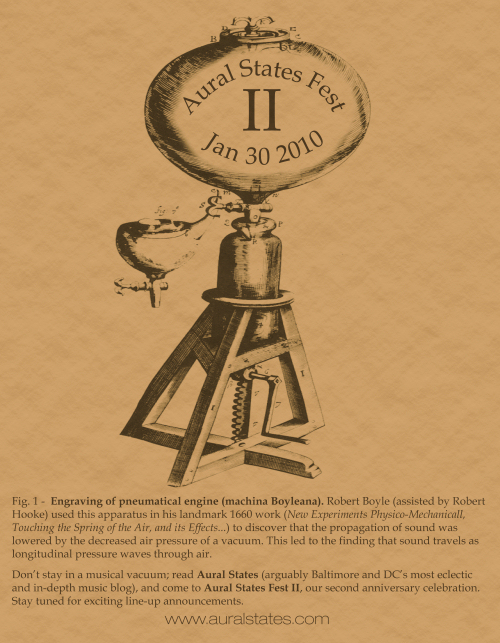
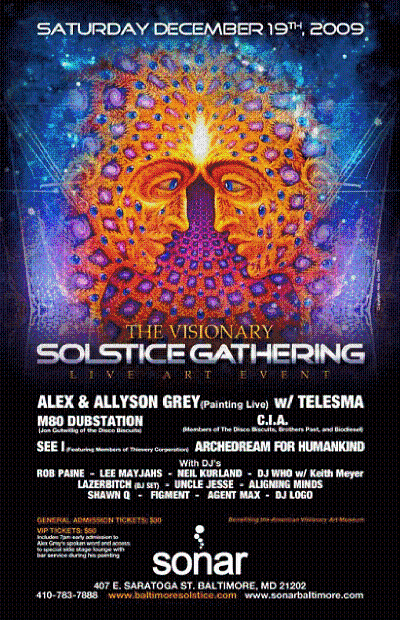









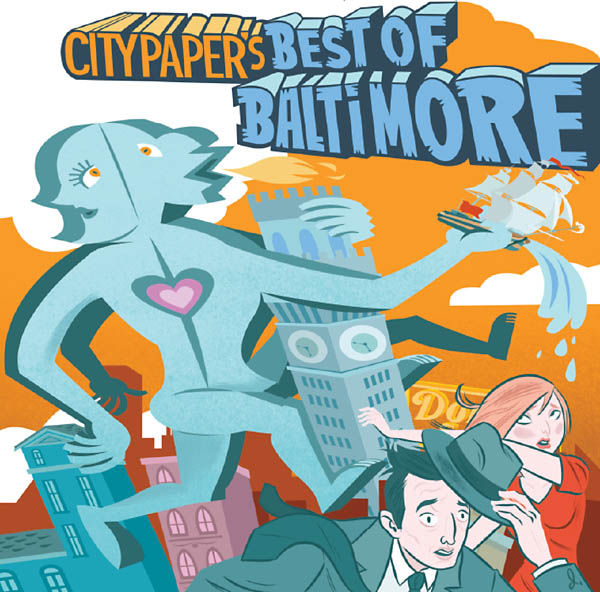
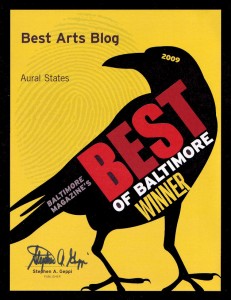


 Double Dagger: Masks EP
Double Dagger: Masks EP Pfisters: Narcicity
Pfisters: Narcicity Lizz King: All Songs Go To Heaven
Lizz King: All Songs Go To Heaven Imperial China: Phosphenes
Imperial China: Phosphenes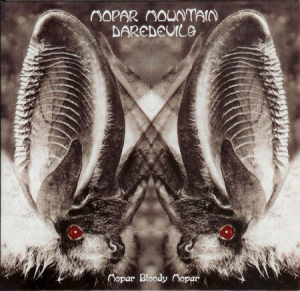 Mopar Mountain Daredevils: Mopar Bloody Mopar
Mopar Mountain Daredevils: Mopar Bloody Mopar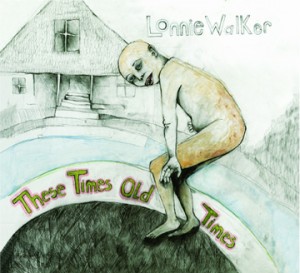 Lonnie Walker: These Times, Old Times
Lonnie Walker: These Times, Old Times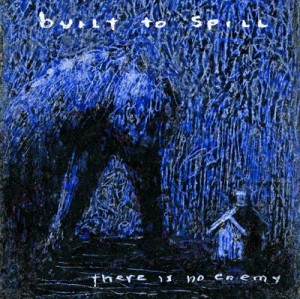 Built to Spill: There Is No Enemy
Built to Spill: There Is No Enemy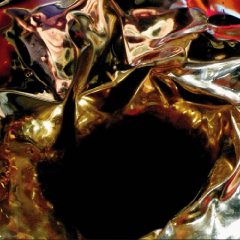 Hypnotic Brass Ensemble: Hypnotic Brass Ensemble
Hypnotic Brass Ensemble: Hypnotic Brass Ensemble Secret Mountains: Kaddish EP
Secret Mountains: Kaddish EP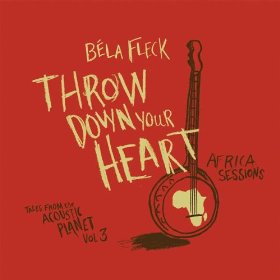 Bela Fleck: Throw Down Your Heart: Tales From the Acoustic Planet, Vol. 3 -Africa Sessions
Bela Fleck: Throw Down Your Heart: Tales From the Acoustic Planet, Vol. 3 -Africa Sessions Lands & Peoples: Lands & Peoples EP
Lands & Peoples: Lands & Peoples EP Caleb Stine: Eyes So Strong and Clean
Caleb Stine: Eyes So Strong and Clean Wye Oak: The Knot
Wye Oak: The Knot Pontiak: Maker
Pontiak: Maker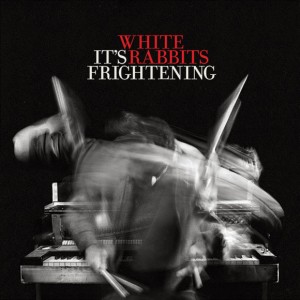 White Rabbits: It's Frightening
White Rabbits: It's Frightening Dirty Projectors: Bitte Orca
Dirty Projectors: Bitte Orca Double Dagger: More
Double Dagger: More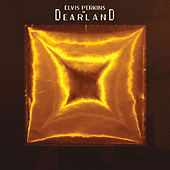 Elvis Perkins in Dearland: Elvis Perkins in Dearland
Elvis Perkins in Dearland: Elvis Perkins in Dearland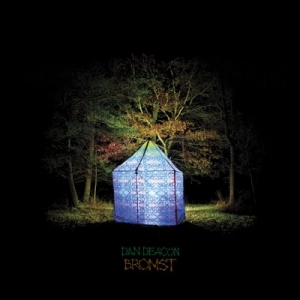 Dan Deacon: Bromst
Dan Deacon: Bromst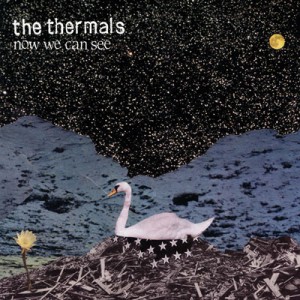 The Thermals: Now We Can See
The Thermals: Now We Can See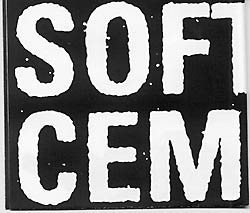 Soft Cement: Think About It EP
Soft Cement: Think About It EP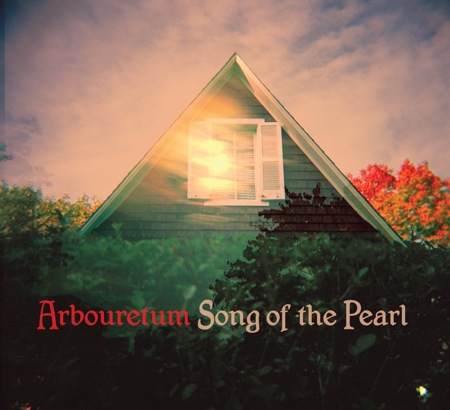 Arbouretum: Song of the Pearl
Arbouretum: Song of the Pearl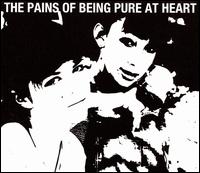 The Pains of Being Pure at Heart: The Pains of Being Pure at Heart
The Pains of Being Pure at Heart: The Pains of Being Pure at Heart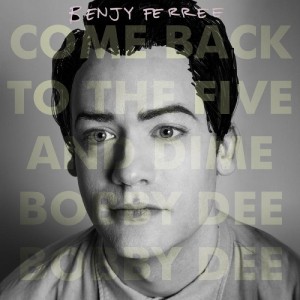 Benjy Ferree: Come Back to the Five and Dime, Bobby Dee Bobby Dee
Benjy Ferree: Come Back to the Five and Dime, Bobby Dee Bobby Dee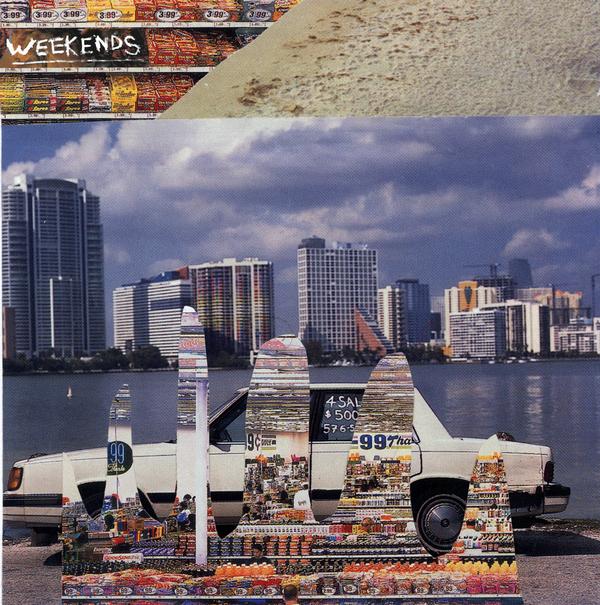 Weekends: Weekends
Weekends: Weekends Height With Friends: Baltimore Highlands 12" LP, Limited-Run Vinyl Only
Height With Friends: Baltimore Highlands 12" LP, Limited-Run Vinyl Only Caverns: Kittens! EP
Caverns: Kittens! EP Little Joy: Little Joy
Little Joy: Little Joy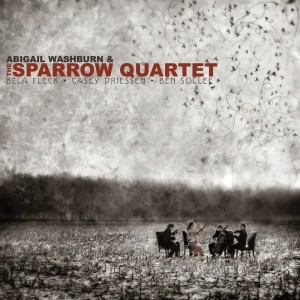 Abigail Washburn & the Sparrow Quartet:Abigail Washburn & the Sparrow Quartet
Abigail Washburn & the Sparrow Quartet:Abigail Washburn & the Sparrow Quartet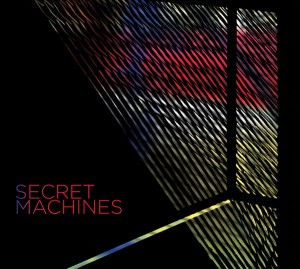 The Secret Machines: Secret Machines
The Secret Machines: Secret Machines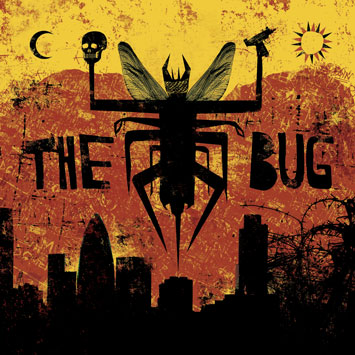 The Bug: LondonZoo
The Bug: LondonZoo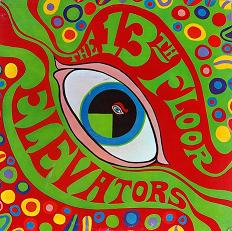 13th Floor Elevators: Psychedelic Sounds of the 13th Floor Elevators (Vinyl Mono LP only)
13th Floor Elevators: Psychedelic Sounds of the 13th Floor Elevators (Vinyl Mono LP only) Arbouretum/Pontiak: Kale (Vinyl LP only)
Arbouretum/Pontiak: Kale (Vinyl LP only) Small Sur: We Live in Houses Made of Wood
Small Sur: We Live in Houses Made of Wood AbeVigoda: Skeleton
AbeVigoda: Skeleton ImperialChina: Methods: EP
ImperialChina: Methods: EP
I would love to see you guys 443-519-6778